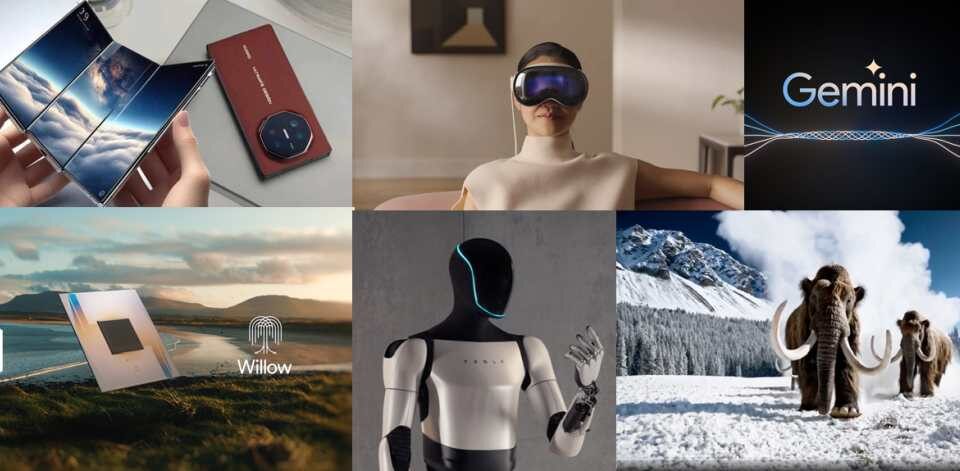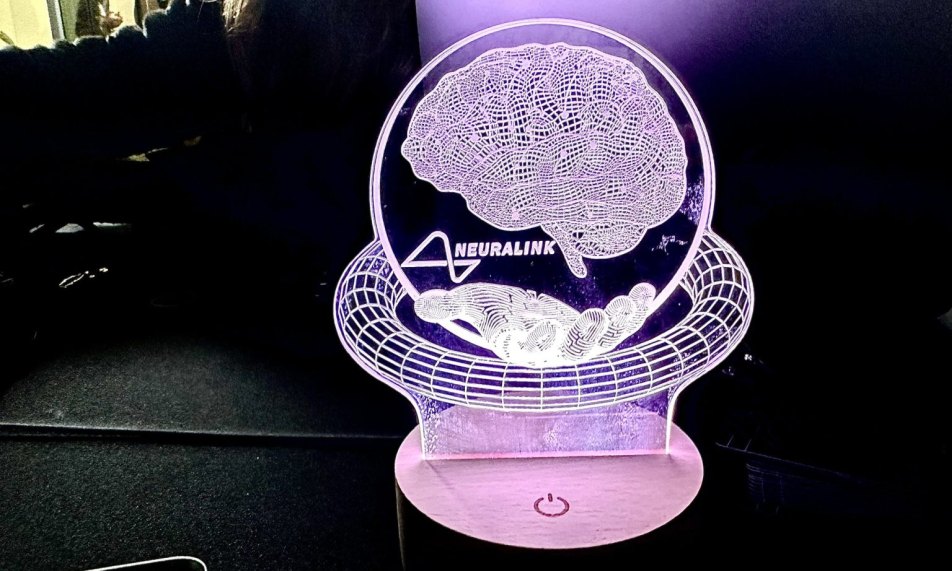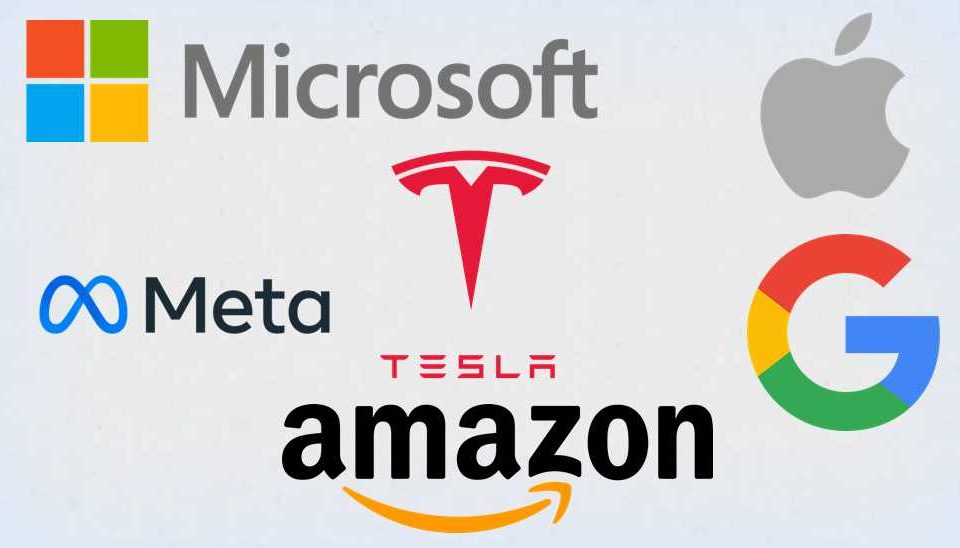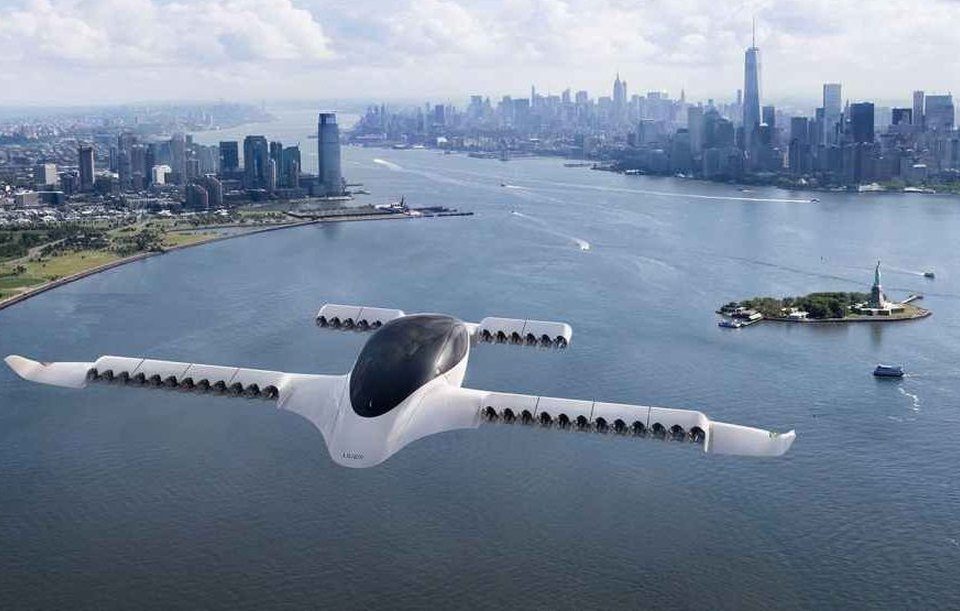Top Tech News Stories of 2024

At TechStartups, we keep a close watch on how technology reshapes lives and industries worldwide. Without a doubt, artificial intelligence (AI) dominated the headlines this year. From ChatGPT outperforming students on standardized tests to Soral’s viral AI-generated videos, AI has touched nearly every aspect of modern life. Looking ahead, McKinsey forecasts that by 2025, AI agents could replace 70% of office work.
But 2024 wasn’t all about AI. Robotics took center stage as Tesla unveiled Olympus, showcasing its ability to handle household chores. As the year wraps up, here’s a look at some of the most impactful tech stories based on social media trends and Google search data.
1. AI’s Seamless Integration into Everyday Life

Generative AI cemented itself as a foundational technology in 2024. Just two years after the launch of ChatGPT, AI, particularly generative AI, has shifted from experimental use to becoming an integral part of our daily lives. Both Google and Microsoft led the charge, unveiling tools that brought AI into mainstream applications:
In May, Google enhanced its AI ecosystem with “Google Brain 2.0”, a suite of tools providing real-time translation and seamless content creation capabilities within Google Docs. This update allowed users to generate documents and presentations at unprecedented speeds while overcoming language barriers.
In June, Microsoft introduced “AI Personal Agents”, which simplified tedious business tasks like scheduling, email management, and creating PowerPoint presentations. These tools underscored AI’s role in boosting productivity, especially for professionals.
These advancements signify how AI is no longer experimental but embedded in business operations and personal tasks, promising efficiency and smarter solutions across industries.
2. Quantum Computing and AI Chips

In 2024, advancements in computing hardware set the stage for more powerful AI applications. The year also brought groundbreaking developments in computing hardware, aimed at bolstering AI capabilities:
- Nvidia’s Blackwell platform, launched in March, introduced state-of-the-art AI chips such as the GB200, designed for running complex AI models more efficiently. These chips powered advanced applications like language processing and high-fidelity simulations.
- In September, Google revealed its new 72-qubit quantum chip, an innovation poised to accelerate breakthroughs in cryptography and drug discovery. This chip adds significant momentum to quantum computing, moving it closer to solving real-world problems.
- On December 9, Google also unveiled Willow, a breakthrough quantum chip that solves the 10 septillion-year (10^25-year) problem in under 5 minutes.
The combined evolution of AI chips and quantum computing highlights the industry’s ongoing effort to push the boundaries of computational power.
3. Neuralink’s Breakthrough Brain Implant

The year 2024 also marked the birth of the human brain chip implant. Neuralink, the brain-computer interface company co-founded by Elon Musk, made headlines in January with the successful implantation of its first brain chip in a human subject.
- The recipient, Noland Arbaugh, had been paralyzed from the shoulders down for eight years after a diving accident. With Neuralink’s device, named “The Link”, he gained the ability to control a computer cursor using only his thoughts, offering him newfound independence.
- Arbaugh shared his experience, explaining how the implant allowed him to play online chess and multitask, activities he could never perform after his accident. “I can control a computer like anyone else can, which was not an option for me before,” Arbaugh said.
The Technology Behind the Breakthrough:
The chip, about the size of a coin, is implanted under the skull. It uses 64 ultra-thin wires, each equipped with over 1,000 electrodes capable of reading neuron activity. These signals are transmitted wirelessly to external devices, enabling direct control of computers or smartphones.
Ethical Questions and Future Potential:
While Neuralink’s innovation is transformative, it raises concerns about privacy and the ethical use of brain-computer interfaces. Beyond assisting those with paralysis, the technology holds the potential for treating Parkinson’s disease, depression, and other neurological conditions, though its societal implications warrant thoughtful discussion.
4. Trillion-Dollar Tech Giants

The tech sector reached new heights in 2024, with several companies breaking into or solidifying their position in the trillion-dollar valuation club. This elite group exemplified the dominance and market power of technology giants:
- Apple: By December 23, Apple’s valuation reached $3.85 trillion, just shy of the historic $4 trillion mark. This growth was fueled by investor optimism in Apple’s AI investments and the highly anticipated iPhone “supercycle”.
- Nvidia: In November, Nvidia briefly overtook Apple as the world’s most valuable company, reaching $3.65 trillion. The company’s success was largely driven by its AI chips, which have become essential for running generative AI models.
- Broadcom: Riding on the AI wave, Broadcom crossed the $1 trillion mark in December, solidifying its position as a leader in semiconductors.
Expanding Membership:
2024 also welcomed Berkshire Hathaway as the only non-tech company in the trillion-dollar club, and Tesla, which re-entered the list in November after strong investor confidence.
The year closed with the top valuations as follows:
- Apple: $3.86 trillion
- Nvidia: $3.36 trillion
- Microsoft: $3.33 trillion
This unprecedented accumulation of wealth within the tech sector underscores the increasing reliance on artificial intelligence, cloud computing, and advanced semiconductor technologies.
5. Tech Layoffs and Workforce Restructuring
The tech sector saw continued layoffs, with major companies attempting to streamline operations, raising discussions on the role of human employees amidst AI growth. Additionally, antitrust scrutiny intensified, with Google facing legal actions regarding its market practices. In January, Meta announced significant layoffs to realign its workforce with AI-driven roles. In August, Google faced a landmark antitrust lawsuit in the US for monopolistic practices in search and advertising.
2024 witnessed a significant wave of layoffs across the technology sector, continuing a trend from previous years but with a notable shift towards AI-focused restructuring. Here’s an overview of the major tech layoffs in 2024:
Scale of Tech Layoffs: 151,484 Tech Workers Laid Off in 2024
The tech industry continued to witness significant layoffs in 2024, though the pace slowed compared to the previous year. By December, 151,484 tech workers were laid off—a 43% drop from 2023’s layoffs but still a major shakeup for the workforce.
Major Companies Leading the Layoffs:
- Intel: Announced 15,000 job cuts, about 15% of its workforce.
- Tesla: Eliminated 14,000 positions, focusing resources on automation.
- Dell: Reduced its headcount by 12,500 employees.
- Microsoft: Cut 4,050 jobs, primarily in its gaming and Azure divisions.
- SAP: Let go of 8,000 workers, while simultaneously committing €2 billion annually to AI development.
Reasons Behind the Layoffs:
Economic challenges and over-hiring during the pandemic forced many companies to downsize. However, a notable trend in 2024 was the shift toward restructuring for AI and automation, which drove many layoffs but also spurred significant investments in AI-focused roles.
Sector-Specific Impacts:
- Hardware and electronics were hit hardest, accounting for over 26,800 layoffs.
- Biotech and transportation sectors also saw significant reductions, with 19,400 jobs lost in the latter.
While layoffs reflect short-term restructuring, many companies increased their AI investments, signaling long-term shifts in workforce dynamics.
6. Apple Vision Pro: Redefining Mixed Reality

Apple made its long-awaited debut in the mixed reality space with the launch of the Vision Pro headset in February 2024. This groundbreaking device has been hailed as a turning point in how users interact with digital content.
Key Features and Innovations:
- The Vision Pro integrates augmented reality (AR) into everyday tasks, such as overlaying real-time data during surgeries.
- It offers an intuitive, gesture-based interface that enables seamless transitions between physical and digital environments.
Applications in Productivity and Entertainment:
The headset’s capabilities extend beyond personal use. In medical settings, for example, surgeons used the device to access critical overlays during operations. Meanwhile, its entertainment features offered immersive experiences, blending virtual and physical realities.
The Vision Pro marks Apple’s bold move into a growing sector, setting the stage for competition with established players like Meta and Microsoft.
7. Cybersecurity Challenges and Privacy Concerns
The rapid adoption of AI into daily life has raised critical questions about privacy and cybersecurity. In 2024, this conversation became even more urgent as AI-powered misinformation campaigns surged and large-scale data breaches exposed billions of sensitive records.
- Misinformation Campaigns: The misuse of AI-generated content surged during election cycles, with deepfakes and fabricated news misleading millions. These incidents highlighted the potential for AI to disrupt democratic processes and sow confusion.
- Legislative Action: In response, states like California introduced laws to limit the use of deepfakes in political campaigns, aiming to preserve the integrity of information shared with the public.
- Data Exploitation: AI systems increasingly relied on personal data for training and optimization, raising questions about ownership and transparency. Calls for stricter regulations grew louder as privacy advocates pushed back against unchecked data harvesting.
The year 2024 also saw a surge in major cybersecurity breaches, compromising billions of records across industries and impacting individuals worldwide. From healthcare and telecommunications to government agencies and entertainment, the scale of these attacks underscores the growing need for stronger data protection measures.
Key Incidents of 2024
- National Public Data Breach:
- In April, a breach exposed 2.9 billion records, revealing sensitive information such as names, birthdates, Social Security numbers, and more across the U.S., Canada, and the U.K.
- The breach forced the parent company into bankruptcy by October.
- AT&T Breaches:
- A historical hack from 2022 surfaced in 2024, exposing call and messaging data for 110 million customers.
- In March, a new breach leaked 73 million customer records to the dark web, including phone numbers and Social Security numbers.
- Ticketmaster Breach:
- In May, the ShinyHunters group compromised 1.3TB of data, affecting 560 million customers and exposing personal and financial information.
Industry-Wide Implications
The frequency and scope of these incidents reveal vulnerabilities even in large organizations, emphasizing the urgent need for robust cybersecurity frameworks and swift incident responses to safeguard sensitive information. These incidents revealed critical weaknesses in data protection strategies, even among industry giants:
- Large-scale breaches exposed the fragility of digital infrastructures and the potential for cascading impacts across interconnected systems.
- The need for proactive incident response and comprehensive cybersecurity frameworks has never been clearer.
Efforts to address these challenges must also include ethical guidelines for AI usage, ensuring that technology is leveraged responsibly and transparently. The dual pressures of managing cybersecurity risks and protecting privacy have set the stage for a global reassessment of digital security practices.
8. Climate Tech Innovations Drive Sustainability

In 2024, technological innovations focused on environmental sustainability made significant strides. The urgency of addressing climate change spurred significant technological advancements during the year. From carbon capture solutions to innovations in renewable energy, the year highlighted how technology can play a pivotal role in environmental stewardship.
Key Innovations in Climate Technology
- Ocean-Based Carbon Capture
- Captura, a pioneering ocean harvester startup, developed a method to utilize algae for carbon capture. This approach not only sequesters CO₂ but also generates byproducts for use in biofuels and fertilizers.
- The method demonstrated scalability and cost efficiency, offering a practical solution to reduce atmospheric carbon levels.
- Solar Panel Recycling Breakthrough
- A new technique achieved 95% material recovery from discarded solar panels, significantly reducing waste while promoting circularity in renewable energy technologies.
- This development addressed a critical bottleneck in solar technology adoption by ensuring environmental sustainability in manufacturing and disposal processes.
- Carbon-Capturing Microbes
- Researchers unveiled genetically engineered microbes capable of absorbing CO₂ from the atmosphere. This innovation opens up possibilities for decentralized carbon capture systems, particularly in urban areas with high emissions.
Broader Impacts and Industry Adoption
- Corporate Investments:
- Companies such as Amazon and Microsoft ramped up funding for carbon-neutral technologies, pledging billions towards achieving net-zero goals by 2030.
- Government Policies:
- Several governments introduced incentives for businesses adopting renewable energy and green technologies, signaling a global shift towards climate-conscious policies.
These advancements underscore the growing role of technology in combating climate change and setting a precedent for future innovation.
9. Smarter Consumer Electronics Redefine Daily Life

2024 was a breakthrough year for AI-powered consumer electronics, as companies introduced devices designed to make life more intuitive and personalized. The year witnessed the launch of the new Huawei trifold phone and the release of AI-enhanced consumer devices that redefined user experiences:
Impact on Consumer Behavior
- Enhanced User Experiences:
- Devices became more responsive, predicting needs and offering tailored solutions for productivity, health, and entertainment.
- Privacy Trade-offs:
- The deeper integration of AI sparked debates over data privacy, as devices collected vast amounts of personal information to function effectively.
The success of these gadgets reflects a growing consumer appetite for smart devices that enhance efficiency while offering a seamless user experience.
10. The Rise of Autonomous Vehicles and Air Mobility

2024 marked significant progress in autonomous driving and air mobility, as companies prepared to commercialize their groundbreaking technologies.
Self-Driving Trucks
- Aurora Innovation began testing driverless trucks on major public highways in Texas. By the end of the year, 20 trucks were transporting goods between Dallas and Houston.
- The company aims to expand its fleet to thousands of trucks within the next three years, potentially transforming the logistics industry.
Flying Taxis Take Off
- In October, the Federal Aviation Administration (FAA) finalized rules for operating air taxis, paving the way for Advanced Air Mobility (AAM) vehicles:
- These electric aircraft can take off and land vertically, offering a futuristic alternative to traditional transport.
- FAA Administrator Mike Whitaker described the new rules as the start of widespread air taxi operations across the U.S.
2024: A Year of Technological Progress and Persistent Challenges
The year 2024 brought a mix of groundbreaking advancements and pressing challenges. From artificial intelligence reshaping industries to persistent concerns about data privacy and equitable access, the tech landscape remained in a state of constant evolution.
AI: Innovations and Risks
Artificial intelligence dominated headlines, with strides in generative AI tools such as Gemini and ChatGPT capturing global attention. These tools demonstrated remarkable capabilities, but their widespread use also revealed underlying risks:
- Misinformation and Bias: AI systems became tools for spreading misleading content, raising concerns about their role in shaping public opinion. Incidents like Gemini’s misfire and ChatGPT’s occasional inaccuracies highlighted the need for enhanced safety measures and ethical guidelines.
- Demand for Accountability: Public discourse increasingly called for transparency in AI development, focusing on minimizing biases and ensuring the technology serves society responsibly.
AI Copilots Redefine Work
The idea of AI copilots gained momentum, promising to assist users in tasks ranging from creative work to administrative functions:
- Productivity Boosts: Businesses adopted AI copilots to streamline workflows, with notable adoption in industries like software development and customer service.
- Reliability Concerns: Despite their promise, questions about their accuracy and ability to adapt to complex, real-world scenarios persisted. The technology’s true impact on productivity and human-AI collaboration remains a topic of ongoing experimentation.
Data Privacy and Security Concerns
The rapid expansion of AI-driven solutions has intensified concerns around personal data usage:
- Privacy in Question: AI relies heavily on vast datasets, often collected without explicit user consent. This practice raised significant concerns about data ownership and ethical usage.
- Calls for Regulation: Advocacy groups pushed for stricter laws to safeguard consumer information and promote transparency among corporations handling sensitive data.
Addressing the Digital Divide
In 2024, the issue of unequal access to technology became more pronounced, particularly in rural areas:
- Healthcare Innovations: Telemedicine and remote patient monitoring emerged as key tools to address healthcare deserts, offering solutions to underserved communities.
- Logistical Breakthroughs: Drone technology provided innovative ways to deliver essential supplies to remote regions, improving the quality of life for those previously left behind.
Emerging Technologies Pave the Way
Beyond AI, other cutting-edge innovations showed the potential to revolutionize industries:
- Wireless Communication: Reconfigurable intelligent surfaces (RIS) hinted at transformative changes in connectivity, enabling faster and more efficient wireless networks.
- Sustainable Solutions: Carbon-capturing microbes and alternative livestock feed innovations offered new ways to combat environmental challenges.
Reflections on 2024
This year brought a mix of opportunities and challenges for technology. Innovations in AI, computing, and sustainability showcased human ingenuity. At the same time, issues like layoffs, privacy concerns, and economic shifts reminded us of the need for responsible innovation.
As we step into 2025, the focus will likely remain on balancing progress with accountability. From addressing privacy concerns to ensuring equitable access to technology, the choices made now will shape the future for years to come.




